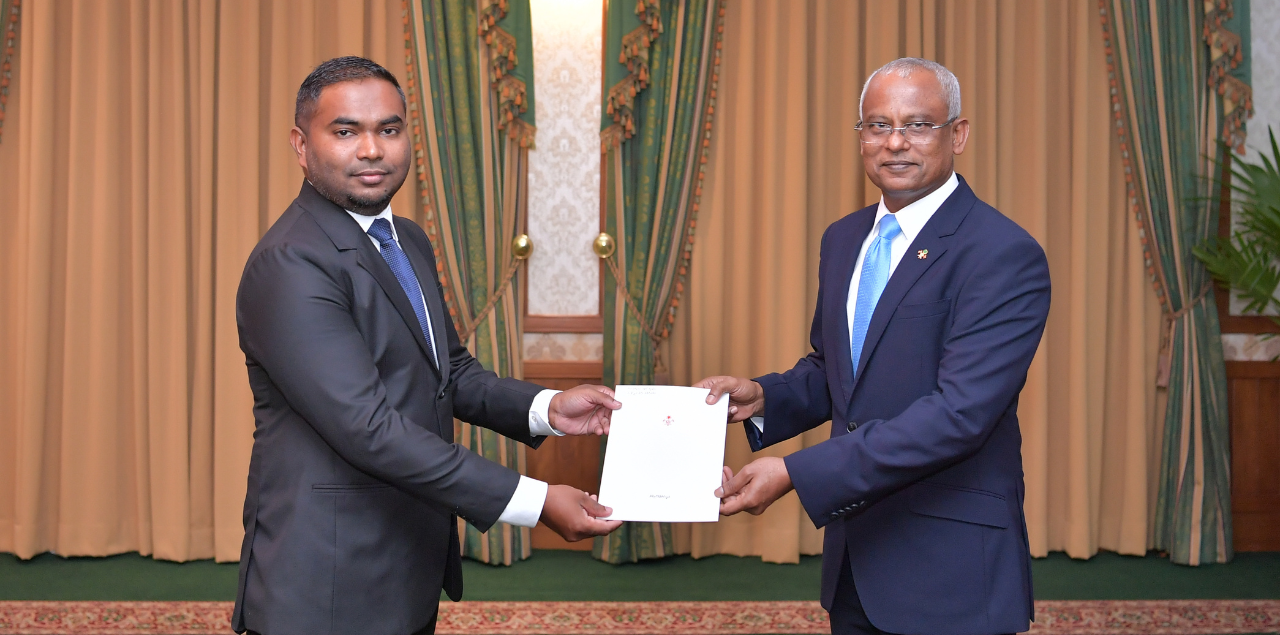Justice Mahaz Ali on Commencement of Online and Live Hearings
The following is an extract from the video “Three Years of Success in Conducting Online Hearings” published on Supreme Court YouTube Channel
“We initiated online proceedings when we first went into lockdown in 2020. Before online proceedings commenced, the lockdown compelled us to pause hearings. Even during this period when the hearings were halted, Justices met in online meetings through WhatsApp, Lifesize and other applications. If I recall correctly, the first time online deliberation we had was when the People’s Majilis sought the Supreme Court’s Advisory Opinion. The discussions and deliberations regarding the matter were undertaken online.
The Justices had even before extension of the lockdown, discussed on how the court could proceed with its hearings. If you look at the history of the Maldives, you will find that we had held online hearings, and this includes part of some Supreme Court hearings undertaken via audio conferencing. With this experience, we began discussions on how to initiate and conduct online hearings. This resulted in regulations laying out the procedures for online proceedings. Initially, Justices confronted several challenges in conducting online proceedings, as was the case for everyone else. There were a number of planning and practical issues and we were concerned about a number of factors. The online hearing conducted by the Supreme Court was in June 2020. It was an, in camera hearing that was not live streamed. If I recall correctly the subsequent online hearings (after the initial one on June 20, 2020) were verdicts, this was due to issues with internet speeds, to ascertain the technical issues, and concerns of the public.
With the commencement of online hearings, we found it easier to access the vast volumes of documentation we have to consider and reference – as the Supreme Court we need to examine the decisions of and submissions made at the trial courts and the High Court. When we have to go through the physical files (as we did prior to commencing online hearings) there were difficulties in locating specific documents while in the hearing, which not only took time but impacted the level of attention we could give. However after online hearings were introduced, accessing documents has become convenient and simple. Online hearings are convenient, not only because parties can participate from their respective locations but there are additional advantages to it as well. Delivering summons, reading the judgments from the screen and obtaining electronic signatures, for instance, made the regime introduced by online proceeding more convenient and efficient. Therefore we need to explore how this could be further developed. We do not need to limit ourselves to just online hearings.
As a Justice, I’m encouraged that online hearings has increased the public’s confidence in the Supreme Court as well as the High Court. I hope that High Court hearings are also open to the public, and that the Civil Court, Criminal Court and all lower Courts are able to undertake online trials and make proceedings public. That justice is effectively administered and that judicial processes are concluded in a timely manner. This will ultimately result in increased confidence in the entire judicial system.
Conducting online hearing is not the only way to gain the public’s confidence in the judiciary. We need to make better use of the technology to conduct online hearings. For example, when we read 30 to 40 page long judgments off paper, there is a possibility of missing a word or two, even if we are able to read it fluently. However if we used technology while reading lengthy documents, there are applications that can determine whether an error has been made based on what was read. There are technologies that can convert speech to text so that a two hour trial can be transcribed instantly. There are systems in existence that identify or automatically suggest judgments or documents containing the words referred by lawyers during the hearings. Effectively utilizing such technologies in the judicial system is a way through which we can enhance and improve our hearings and to stand on an equal footing with other countries in the future. This is our hope and our future.”
